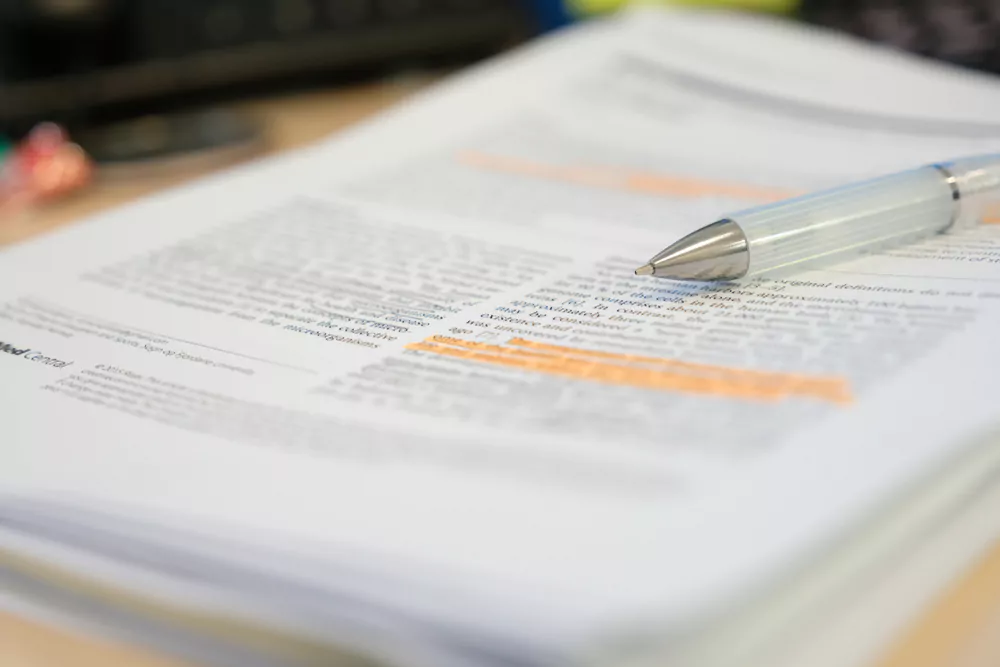How to Become a Journalist? A Comprehensive Guide

In the whirlwind world of information, journalists stand as beacons of truth, courageously delving into complexities, unveiling realities, and shaping public discourse. Their role is invaluable, and their journey often as exciting as the stories they report. If you’re intrigued by the power of words, curious about the world, and driven by a relentless pursuit of truth, journalism may be the career for you.
Yet, how to become a journalist? It’s a question that has a spectrum of answers. This guide unravels that spectrum, providing a comprehensive roadmap to help you embark on the captivating odyssey of becoming a journalist. It’s not just about the ‘who’, ‘what’, ‘where’, or ‘when’, but rather, about understanding the ‘how’ and the ‘why’ of journalism, and translating it into your unique story.
1 Education

Most journalists hold at least a bachelor’s degree in journalism or related fields such as English, Communications, or Political Science. This degree offers foundational knowledge in various areas like writing, research, media ethics, and news production. But that’s just the beginning.
While traditional journalism degrees are still valid, new journalism trends like data journalism and multimedia journalism necessitate the need for new educational paths. These might include specialized courses in digital media, data analytics, and computer science, to name a few. Today, many colleges and universities offer these specialized journalism degrees to cater to the industry’s evolving needs.
Postgraduate education, like a Master’s degree in Journalism or a related field, can provide further expertise and specialization, thereby enhancing career opportunities. However, this is not a must-have for every journalist.
2 Skills
Education alone won’t make a good journalist. Certain skills are vital, with the most significant one being excellent written and verbal communication skills. A journalist should be able to convey information clearly, accurately, and compellingly to their audience.
Research skills are essential to dig deep into stories, find credible sources, and corroborate facts. A good journalist also needs to be a critical thinker, capable of analyzing complex issues and making sense of ambiguous situations. Other necessary skills include ethical judgment, technological savvy, adaptability, and a knack for storytelling.
Moreover, journalism is a fast-paced industry, which means the ability to work under pressure and meet tight deadlines is crucial. A strong sense of curiosity, tenacity, and passion for truth are indispensable traits in this profession.
3 Experience

Field experience is arguably as important as formal education in journalism. Experience can come in various forms – internships at news organizations, contributing articles to school newspapers or local community publications, blogging, podcasting, or even freelancing.
Many journalists started their careers as interns or junior reporters, which gave them hands-on experience in news writing, reporting, and understanding the daily operations of a newsroom. This experience is invaluable in gaining real-world insights into the profession, developing professional contacts, and building a portfolio of work.
4 Networking
Networking is an important, often overlooked aspect of becoming a journalist. Engaging with the journalism community, attending industry conferences, or joining professional journalism associations can open doors to opportunities. These platforms not only provide exposure to different aspects of journalism but also offer mentorship, job opportunities, and professional development resources.
5 Internship Opportunities
Internships are often a stepping stone into the world of journalism. They provide practical experience and help build professional connections that can prove invaluable in the future. Prospective journalists should seek internships at local newspapers, magazines, television or radio stations, online media outlets, or PR firms. Interns typically support senior staff members, learn the ropes of journalistic writing, and gain a first-hand understanding of the newsroom’s fast-paced environment.
6 Developing a Portfolio

A portfolio is a collection of a journalist’s work, showcasing their skills, versatility, and areas of expertise. It is an essential tool for job hunting in the journalism field. Whether in print or digital form, the portfolio should feature the best and diverse set of work – articles, blog posts, interviews, video reports, or podcasts.
7 Freelance Journalism
Not all journalists work in a newsroom setting. Many successful journalists work as freelancers, selling their stories to various publications. Freelance journalism offers more flexibility and independence but also requires self-discipline, strong business skills, and the ability to market oneself effectively.
8 The Role of Social Media in Journalism
Today, journalists use social media as a tool for gathering information, verifying facts, promoting their work, and engaging with their audience. Understanding how to use different social media platforms and analyzing their impact on journalism is an integral part of a modern journalist’s skillset. You can also earn from various social media accounts. For more information, check out our blog on how to earn money from Instagram.
9 Continuous Learning

Journalism is an ever-evolving field, driven by technological advancements and shifts in media consumption. As such, journalists must be committed to lifelong learning. This could mean acquiring new skills, keeping abreast with industry trends, or learning about new topics to broaden their reporting spectrum.
10 Wrapping up
Becoming a journalist is a journey that involves obtaining the right education, honing necessary skills, gaining experience, networking, creating an impressive portfolio, and embracing continuous learning. It is a challenging yet exciting profession that is vital in today’s complex world. Remember, every journalist’s path is unique. By following the steps outlined in this guide, aspiring journalists can navigate this challenging but rewarding career path with confidence.
Community Q&A
About This Article
Hardik Jethva is an experienced author of the BestCheck family. Working from scratch, he has developed an amazing interest in testing and writing about different products in a transparent manner. His writing skills got more audience for BestCheck. Apart from his professional life, Hardik has his eyes on travelling, meditation, eating healthy food, socializing with people, and car rides.
This article has been viewed 436 times.



